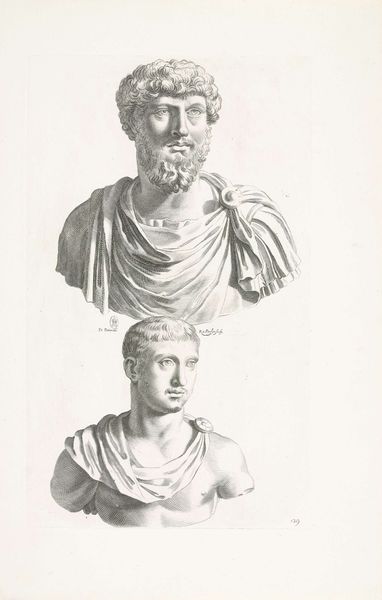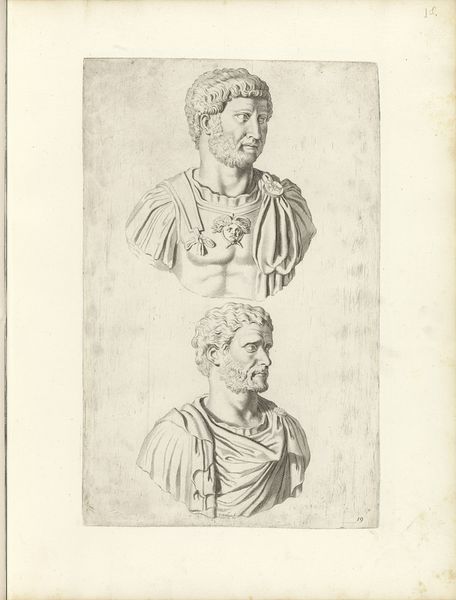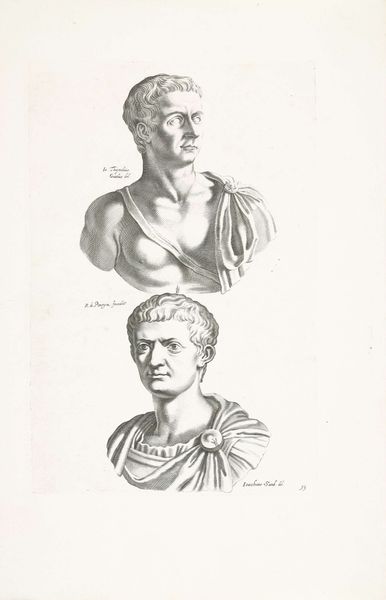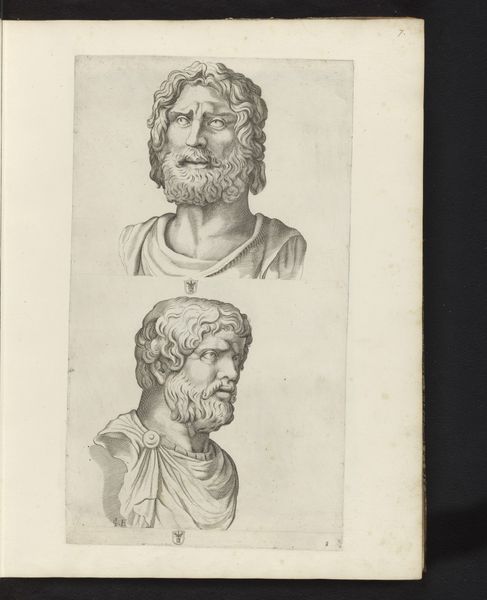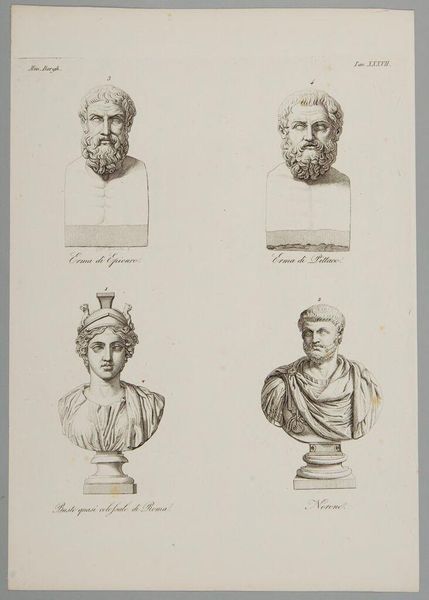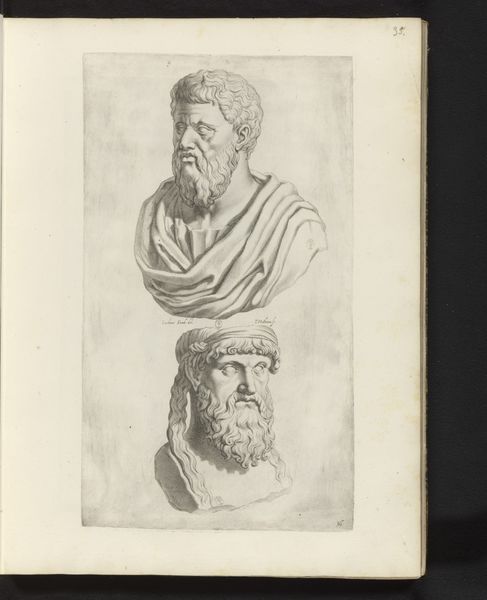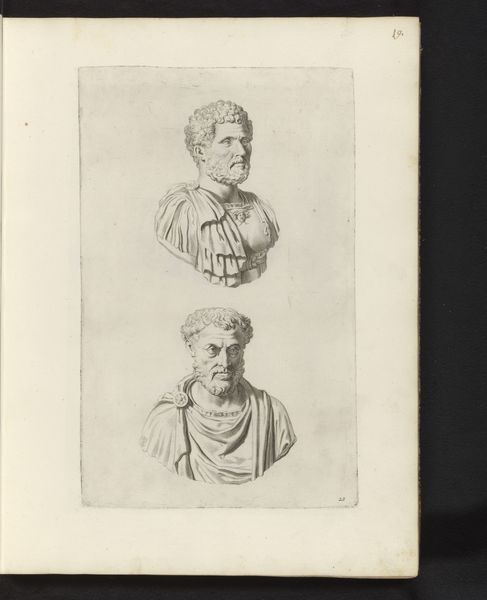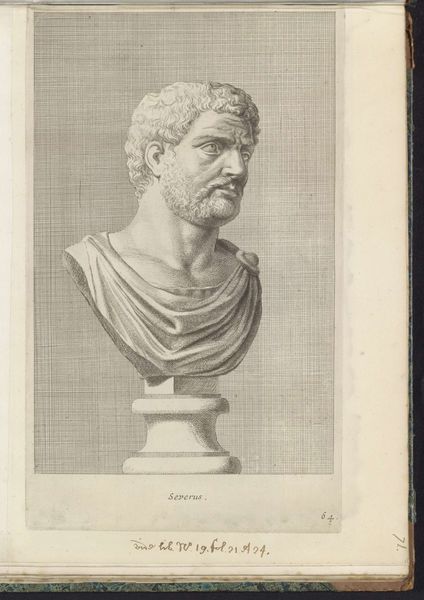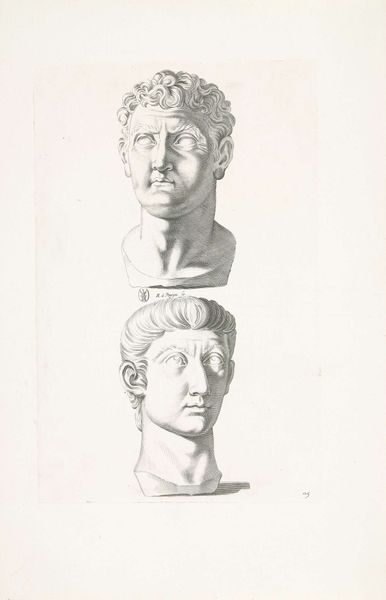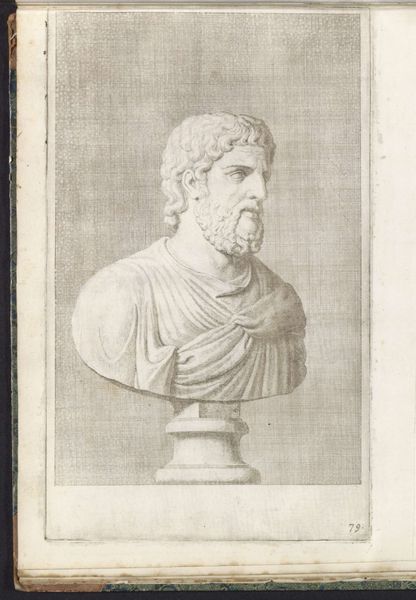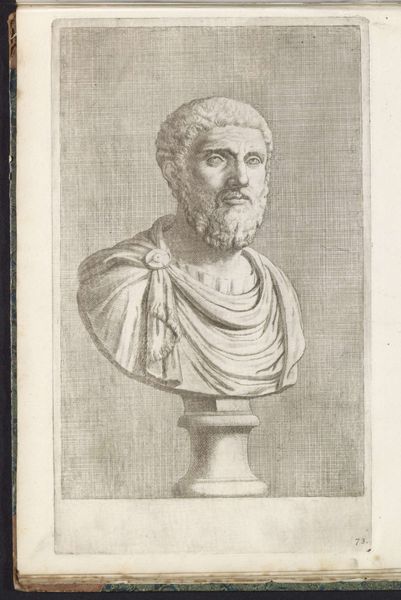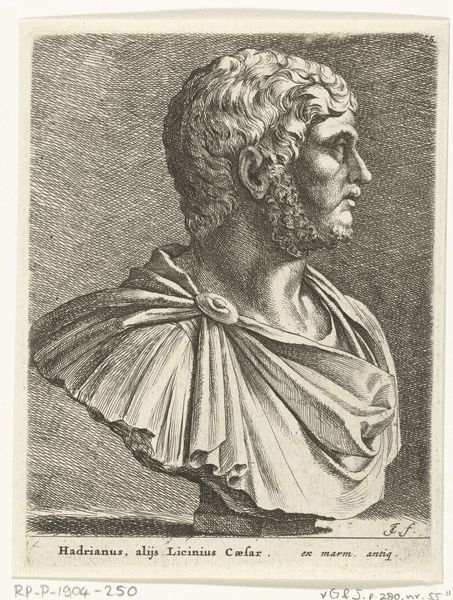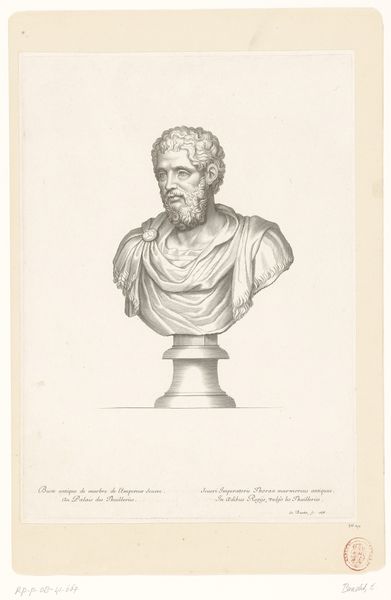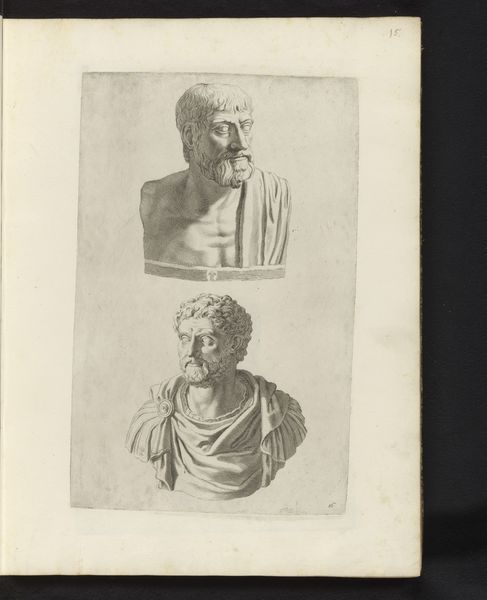
Twee portretbustes van keizer Marcus Aurelius en keizer Septimius Severus 1640
0:00
0:00
reiniervanpersijn
Rijksmuseum
drawing, pencil
#
portrait
#
pencil drawn
#
drawing
#
classical-realism
#
figuration
#
pencil drawing
#
ancient-mediterranean
#
pencil
#
line
#
history-painting
#
realism
Dimensions: height 369 mm, width 237 mm
Copyright: Rijks Museum: Open Domain
Reinier van Persijn made this print of Marcus Aurelius and Septimius Severus busts in the Netherlands in the 17th century. The busts themselves would have been part of a collection of Roman antiquities, perhaps in the artist's own collection, or more likely in a patron's collection that Persijn had access to. During the Dutch Golden Age, there was a widespread interest in classical antiquity. Wealthy merchants and aristocrats collected Roman artifacts as symbols of refinement and power. Artists played a role in disseminating knowledge of these collections to a broader audience. Persijn’s print thus provided a form of access to these exclusive collections. The use of printmaking to reproduce classical sculpture also raises questions about the authority of the image. How does the print mediate our understanding of the Roman emperors? What does it mean to circulate images of power in a republic, which the Netherlands was at the time? We can study auction catalogues, inventories of private collections, and treatises on art theory to deepen our understanding of art’s social and intellectual life in 17th century Netherlands.
Comments
No comments
Be the first to comment and join the conversation on the ultimate creative platform.
